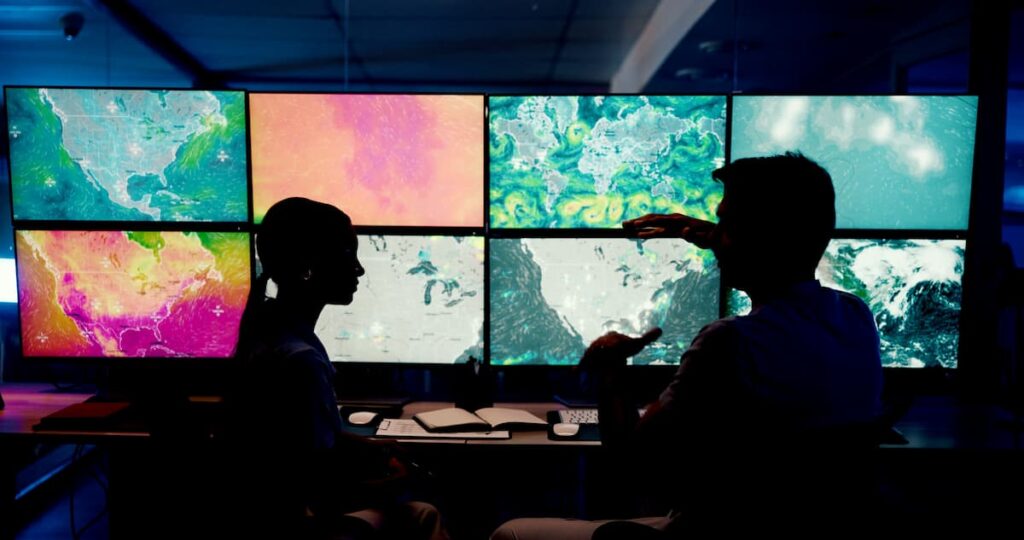A Trusted Climate Resource Faces Uncertain Future
Climate.gov, a key public resource operated by the National Oceanic and Atmospheric Administration (NOAA), is on the verge of being silenced. Known for offering accurate, science-based information on climate change and weather patterns, the site has long played a vital role in educating the public. However, recent internal changes have left it without a content team, raising concerns over its future and the potential loss of one of the most visited climate education platforms in the United States.
Over the years, Climate.gov built a reputation for being nonpartisan, science-driven, and highly accessible. Its content helped millions of people understand not only the broader issue of human-caused climate change but also climate patterns like El Niño and La Niña that directly affect daily life. The website was especially valuable for students, educators, scientists, journalists, and citizens looking for trustworthy information in an age of growing climate misinformation.
Yet, this credibility has now been undermined. All editorial and production staff responsible for Climate.gov’s content have been removed, including contractors and specialists who handled social media, educational outreach, and the editorial process. With no new content planned beyond a few pre-scheduled updates, and no one left to manage its widely followed social channels, the site’s role as a trusted source of climate facts is now in jeopardy.
Internal Decisions With External Consequences
The changes to Climate.gov didn’t happen by accident. Staff cuts were not part of a general downsizing, but rather a targeted removal of a small group of people—specifically, the entire content team. Though NOAA has not issued a public statement, those close to the matter describe it as an intentional move to reduce public-facing climate communication.
Despite being housed within NOAA’s science division—not public affairs—the site is now at risk of being transformed or misused. While the website will remain visible for now, there is growing concern that its well-established platform could be redirected to serve political agendas. With its large digital audience and respected reputation, the domain could be used to share misleading or anti-science messaging under the appearance of credibility.
The decision to keep only two web developers, while removing all science communicators, has sparked fears that the site may be altered in both purpose and content. What was once a tool for empowering citizens with facts could become a space for misinformation or even climate denial, especially if taken over by groups with political motives.
The Broader Impact on Climate Education
The shutdown of Climate.gov’s team is not an isolated event. It reflects broader governmental shifts that include deep cuts to science, education, and environmental programs across various agencies. By limiting public access to climate knowledge, these actions threaten to undermine years of progress in climate awareness and preparedness.
For decades, the role of federal science agencies like NOAA has been not only to conduct research but also to share that knowledge with the public. When accurate, accessible information is suppressed, the public becomes more vulnerable to disinformation. At a time when extreme weather events are becoming more common and climate-driven risks more urgent, silencing a trusted educational tool like Climate.gov creates a significant knowledge gap.
Moreover, losing Climate.gov’s team also means losing direct engagement with the public. Staff once actively responded to misinformation online, corrected false narratives, and answered questions from everyday citizens trying to understand the changing world around them. With that human connection removed, misinformation may now spread more easily and unchecked.
What This Means for the Future
While the site itself may remain online in the short term, its future is uncertain. Without a dedicated team to maintain its editorial integrity and educational mission, Climate.gov’s value as a public resource is greatly diminished. More troubling is the possibility that the platform could be repurposed to advance political narratives rather than scientific ones.
This shift sends a concerning message about the role of science in public life and the willingness of institutions to prioritize facts over politics. Climate change is not just a scientific issue—it’s a human one. Disrupting the public’s access to clear, factual information doesn’t make the problem disappear; it simply makes society less prepared to face it.
The potential loss of Climate.gov is more than the end of a website—it’s a warning about the fragility of public trust in science. In a world where climate literacy matters more than ever, silencing sources of truth does real harm.


